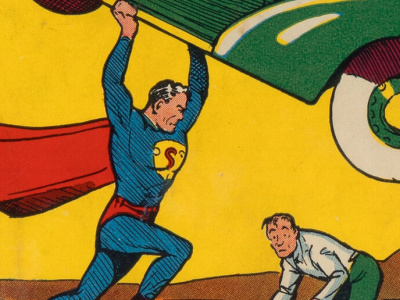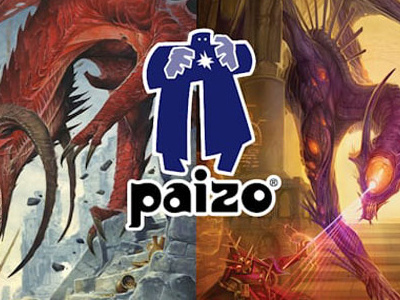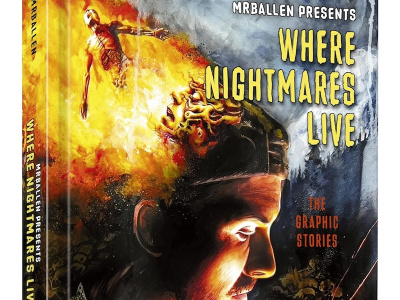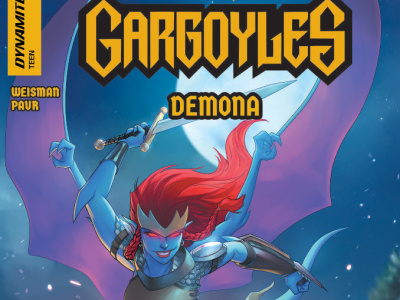
The controversy over Marvel’s claim against Ghost Rider creator Gary Friedrich for $17,000 for Friedrich’s sale of prints and other Ghost Rider merchandise at conventions (see “’Ghost Rider’ Creator Owes Marvel $17 Grand”) has illuminated a little noticed category of commerce that has become a significant part of the world of comic conventions: the sale of short run collectibles in Artists Alley. This is a phenomenon that did not exist until fairly recently, and now has the potential to spawn open warfare between comic publishers and creators.
We talked to Tales of the Beanworld creator and industry veteran Larry Marder, who had a unique perspective on the change. “I was taught all my life, since art school, that sketching one at a time original pieces of art is acceptable, and it’s only when you get into creating multiple copies that it ceases to become a piece of original art and becomes something that’s published, so therefore you need a license,” he said. “Things like sketchbooks, prints, and posters. That’s where I always thought the line was. It totally took me by surprise when I returned to the artist’s community after I was away from it. This is something that didn’t exist in 1999 and I came back in 2009 and I’m like ‘where did this stuff come from?’
Friedrich is not the only creator to run afoul of Marvel’s lawyers on this issue. Artist Sean Gordon Murphy recently posted an account of a dispute with Marvel over a print run of 200 copies of Wolverine ABCs. He gave most of them away, but sold 40, and Marvel involved its lawyers, threatening legal action. The situation was eventually resolved without litigation and without any payments by Murphy to Marvel. But he’s reacted by not only ending any sales of sketchbooks featuring trademarked characters, he’s not doing any convention sketches of trademarked characters either. That’s an extreme reaction (as Marder’s distinction above, makes clear), but one that shows the depth of the feelings on this issue.
So where will this head next? Is a growing wave of enforcement actions by publishers going to change the character of conventions across the country? And how will creators react to this threat of a substantial reduction in their convention incomes? An early answer may come this weekend, at the Image Expo (see “Image Expo in February”).
We talked to Tales of the Beanworld creator and industry veteran Larry Marder, who had a unique perspective on the change. “I was taught all my life, since art school, that sketching one at a time original pieces of art is acceptable, and it’s only when you get into creating multiple copies that it ceases to become a piece of original art and becomes something that’s published, so therefore you need a license,” he said. “Things like sketchbooks, prints, and posters. That’s where I always thought the line was. It totally took me by surprise when I returned to the artist’s community after I was away from it. This is something that didn’t exist in 1999 and I came back in 2009 and I’m like ‘where did this stuff come from?’
Friedrich is not the only creator to run afoul of Marvel’s lawyers on this issue. Artist Sean Gordon Murphy recently posted an account of a dispute with Marvel over a print run of 200 copies of Wolverine ABCs. He gave most of them away, but sold 40, and Marvel involved its lawyers, threatening legal action. The situation was eventually resolved without litigation and without any payments by Murphy to Marvel. But he’s reacted by not only ending any sales of sketchbooks featuring trademarked characters, he’s not doing any convention sketches of trademarked characters either. That’s an extreme reaction (as Marder’s distinction above, makes clear), but one that shows the depth of the feelings on this issue.
So where will this head next? Is a growing wave of enforcement actions by publishers going to change the character of conventions across the country? And how will creators react to this threat of a substantial reduction in their convention incomes? An early answer may come this weekend, at the Image Expo (see “Image Expo in February”).







